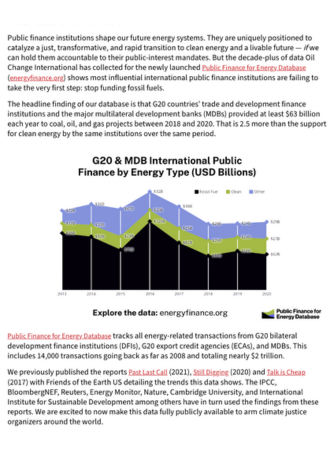
We just launched a database to expose the institutions using our money to fund fossils
Public Finance for Energy Database tracks all energy-related transactions from G20 bilateral development finance institutions (DFIs), G20 export credit agencies (ECAs), and the major multilateral development banks (MDBs). This includes 14,000 transactions going back as far as 2008 and totaling nearly $2 trillion.









